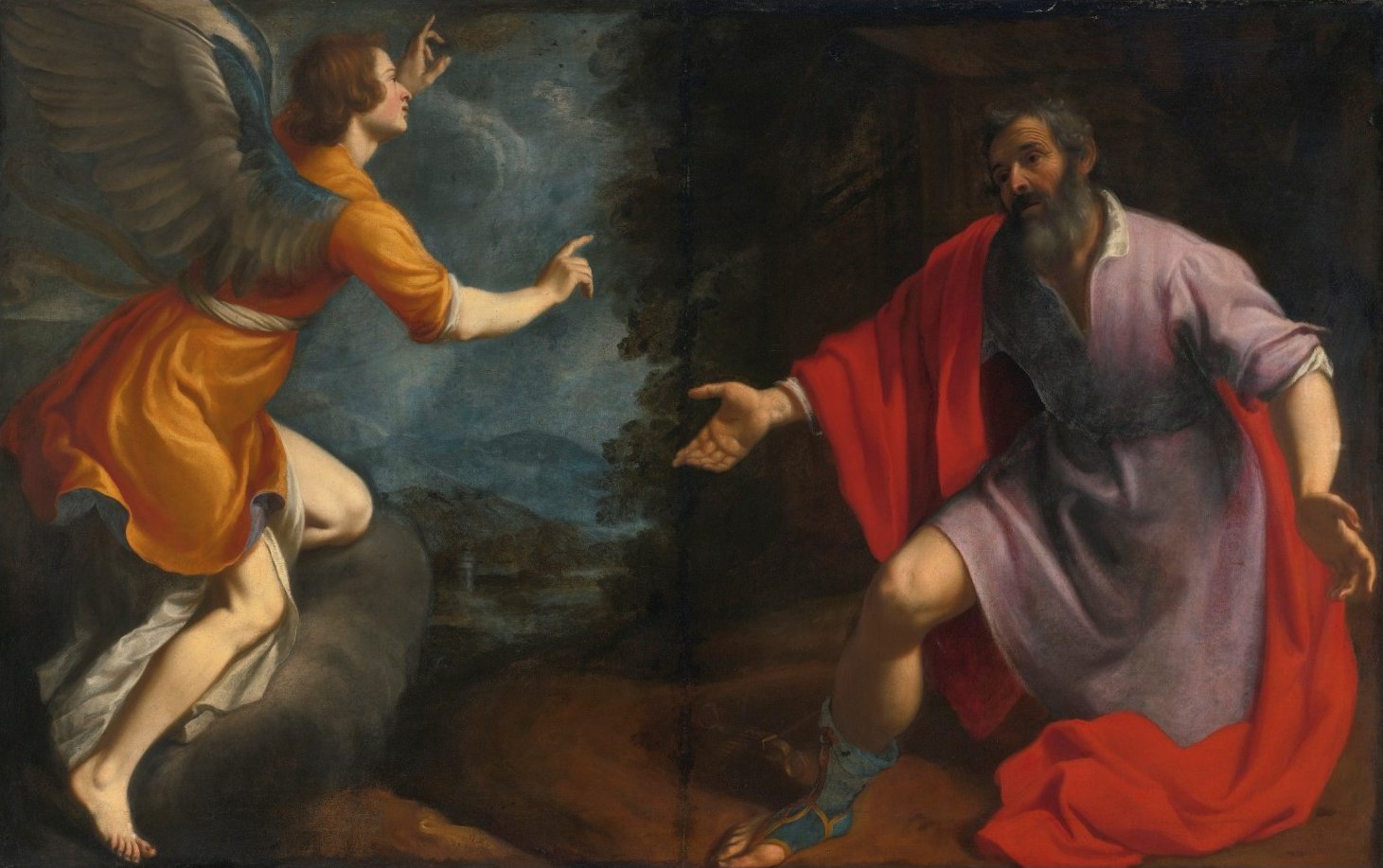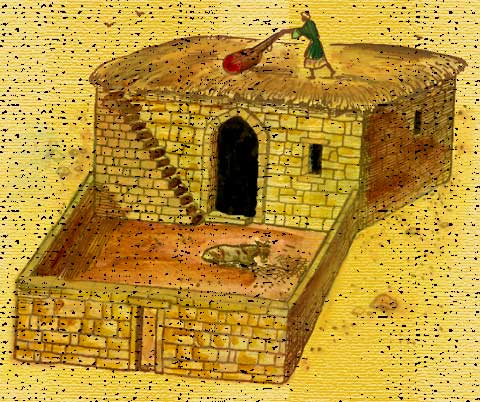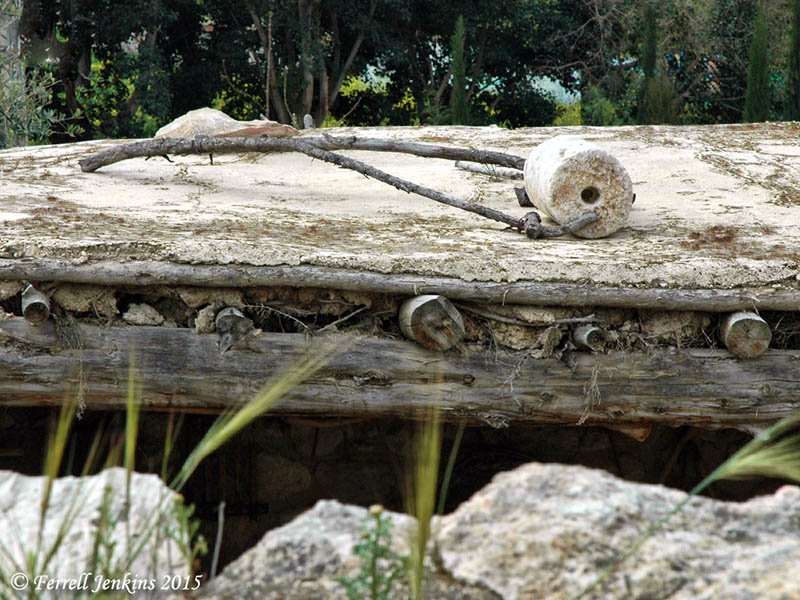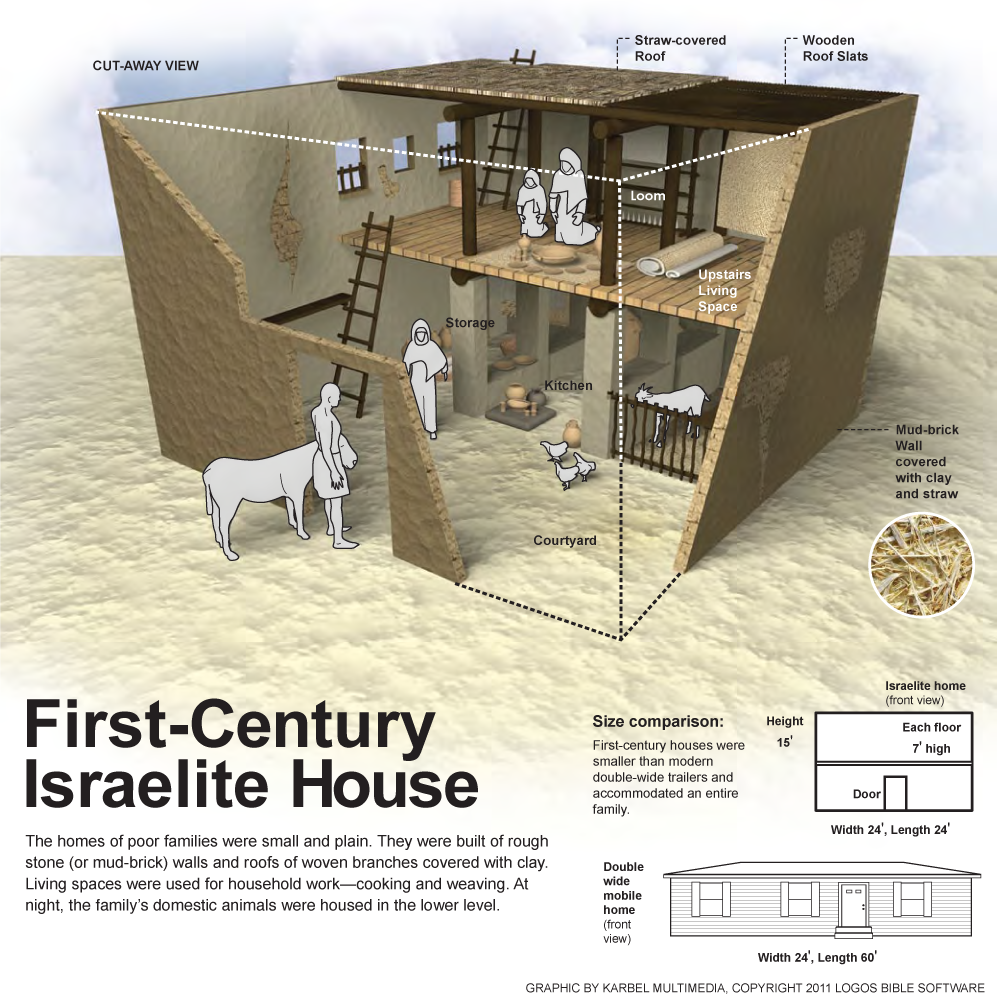Acts 10:9-23
Peter’s Vision
9 About noon the following day as they were on their journey and approaching the city, Peter went up on the roof to pray. 10 He became hungry and wanted something to eat, and while the meal was being prepared, he fell into a trance.11 He saw heaven opened and something like a large sheet being let down to earth by its four corners. 12 It contained all kinds of four-footed animals, as well as reptiles and birds. 13 Then a voice told him, “Get up, Peter. Kill and eat.”
14 “Surely not, Lord!” Peter replied. “I have never eaten anything impure or unclean.”
15 The voice spoke to him a second time, “Do not call anything impure that God has made clean.”
16 This happened three times, and immediately the sheet was taken back to heaven.
17 While Peter was wondering about the meaning of the vision, the men sent by Cornelius found out where Simon’s house was and stopped at the gate. 18 They called out, asking if Simon who was known as Peter was staying there.
19 While Peter was still thinking about the vision, the Spirit said to him, “Simon, three men are looking for you. 20 So get up and go downstairs. Do not hesitate to go with them, for I have sent them.”
21 Peter went down and said to the men, “I’m the one you’re looking for. Why have you come?”
22 The men replied, “We have come from Cornelius the centurion. He is a righteous and God-fearing man, who is respected by all the Jewish people. A holy angel told him to ask you to come to his house so that he could hear what you have to say.”23 Then Peter invited the men into the house to be his guests.
Observations and Reflections
About noon the following day as they were on their journey and approaching the city, Peter went up on the roof to pray. He became hungry and wanted something to eat, and while the meal was being prepared, he fell into a trance. (Acts 10:9-10)
The irony of Peter’s vision was that before he fell asleep, he was fairly hungry. Rather than sit around his house waiting for the food to be cooked, he retreated to the roof to pray. It is safe to assume that waiting for food to finish cooking feels like it takes forever when one is hungry. So Peter decided to keep himself occupied. But why pray on the roof?
In first century Judea, the typical home had a roof that was constructed of straw mats, laid over large wood beams. The mat was then covered in clay, dirt, and sand. This surface was rolled flat to make it water resistant. It was not uncommon for a roof to form a leave after a heavy rain, thus, most homes were rolled and patched quite frequently. The thickness of the roof had to give it structural integrity or at least be able to bear the weight of multiple peoples. This is because the roof was a common place to pray, especially in the evening. The roof would also be used to sleep on in the summer time because the night time air would keep the sleeping company much cooler than being side the house.1
Additionally, people were known to cook on the roof, hold gatherings, setup guest bedrooms, and make public decrees. Roofs were more than just a covering for the home to the ancient Judeans. For a more comprehensive study on ancient homes, I recommend viewing the research done by Farrell Jenkins. He has a website where his travels and studies are documented and the site gives great detail about the lives of the biblical people.
Thus, Peter’s prayer and nap on the roof was not out of the ordinary. However, the content of his vision was anything but ordinary.
He saw heaven opened and something like a large sheet being let down to earth by its four corners. 12 It contained all kinds of four-footed animals, as well as reptiles and birds. 13 Then a voice told him, “Get up, Peter. Kill and eat.”
Peter was a law-observant Jew. This meant that he had restrictions on what he could eat. The animals that were off-limits were considered unclean. Most of the animals that are listed as clean or unclean can be found in Leviticus 11 or Deuteronomy 14.
Dietary laws from Leviticus.
1 – Animals that have split hooves but do NOT chew the cud. Animals that chew the cud but do NOT have split hooves.
Examples in Leviticus of the hoof/cud rule: Camel, Hyrax, Rabbit, Pig.
2 – Anything living in the water that does not have fins and scales is to be regarded as unclean by you.
3 – The birds you are to regard as unclean and not eat because they are unclean.
Eagle, Vulture, Black Vulture, Red Kite, Black Kite, Raven, Horned Owl, Screech Owl, Gull, Hawk, Little owl, Cormorant, Great Owl, White owl, Desert owl, Osprey, Stork, Heron, Hoopoe, Bat.
4 – All flying insects that walk on all fours are to be regarded as unclean by you. 21 There are, however, some flying insects that walk on all fours that you may eat: those that have jointed legs for hopping on the ground. Of these you may eat any kind of locust, katydid, cricket or grasshopper. But all other flying insects that have four legs you are to regard as unclean.
5 – Of all the animals that walk on all fours, those that walk on their paws are unclean for you.
6 – Of the animals that move along the ground, these are unclean for you:
Weasel, Rat, Great Lizard, Gecko, Monitor lizard, Wall lizard, Skink, Chameleon.
7 – You are not to eat any creature that moves along the ground, whether it moves on its belly or walks on all fours or on many feet; it is unclean.
The list of unclean animals from Deuteronomy is more detailed about which animals which is different than Leviticus. The Levitical text give the general rules and then some specifics. Deuteronomy give basically just a list of animals to not eat. Additionally, Deuteronomy adds a few animals to a list of allowable to eat, whereas Leviticus mostly just lists what is NOT allowed to eat.
Dietary Laws from Deuteronomy
1 – These are the animals you may eat:
Ox, Sheep, Goat, Deer, Gazelle, Roe Deer, Wild Goat, Ibex, Antelope, Mountain Sheep.
2 – You may eat any animal that has a divided hoof and that chews the cud. However, of those that chew the cud or that have a divided hoof you may not eat:
Camel, Rabbit, Hyrax.
3 – The pig is also unclean; although it has a divided hoof, it does not chew the cud.
4 – Of all the creatures living in the water, you may eat any that has fins and scales.
5 – You may eat any clean bird. But these you may not eat:
Eagle, Vulture, Black Vulture, Red kite, Black Kite, Falcon, Raven, Horned Owl, Screech Owl, Gull, Hawk, Little Owl, Great Owl, White Owl, Desert Owl, Osprey, Cormorant, Stork, Heron, Hoopoe, Bat.
6 – All flying insects are unclean to you; do not eat them. But any winged creature that is clean you may eat.
7 – Do not eat anything you find already dead. You may give it to the foreigner residing in any of your towns, and they may eat it, or you may sell it to any other foreigner.
8 – Do not cook a young goat in its mother’s milk.
When Peter’s vision is recalled by Luke, the audience is told that she sheet of animals contained 4-footed animals, reptiles, and birds. The animals on the sheet appear to be general, yet something on the sheet must have been unclean for Peter to exclaim that he would not violate the law and eat something unclean. What it was the audience is not told. However, the verse says “all kinds” of the various animals which could easily include unclean animals. So Peter’s reaction is not out of place. In fact, it would be expected for a good Jew.
Do not call anything impure that God has made clean. (Acts 10:15)
The exchange in this passage is interesting because it appears that God declared a change in the dietary laws. Peter must have been taken aback by God telling him that He made the unclean animals clean. However, Peter did not catch on which is why the passage said he wondered about what he was told. To be fair to Peter, the instructions in the vision would have been a drastic departure from his Koser life style. Having had such a strange vision many would rightly wonder if it was even real and if it was real, why would God contradict his own laws?
However, the prophecy of Jeremiah should come to the mind of the modern reader when God declared that the new covenant would not be like the one He made with Israel.
“The days are coming,” declares the Lord,
“when I will make a new covenant
with the people of Israel
and with the people of Judah.
32 It will not be like the covenant
I made with their ancestors
when I took them by the hand
to lead them out of Egypt,
because they broke my covenant,
though I was a husband to[d] them,[e]”
declares the Lord.
33 “This is the covenant I will make with the people of Israel
after that time,” declares the Lord.
“I will put my law in their minds
and write it on their hearts.
I will be their God,
and they will be my people.
34 No longer will they teach their neighbor,
or say to one another, ‘Know the Lord,’
because they will all know me,
from the least of them to the greatest,”
declares the Lord.
“For I will forgive their wickedness
and will remember their sins no more.”
(Jeremiah 31:31-34)
The passage from Jeremiah indicates that the Lord’s new covenant will not be similar to the one that Peter is familiar with. Additionally, Ezekiel speaks of a similar new covenant.
For I will take you from among the nations, gather you out of all countries, and bring you into your own land. 25 Then I will sprinkle clean water on you, and you shall be clean; (Ezekiel 26:24-25)
The Lord promises to make His people clean. Peter’s vision appears to be demonstrating this principle of the new covenant.
After Peter’s vision, Cornelius’ people arrive at the house where Peter was staying.
The men replied, “We have come from Cornelius the centurion. He is a righteous and God-fearing man, who is respected by all the Jewish people. A holy angel told him to ask you to come to his house so that he could hear what you have to say.” (Acts 10:22)
The messengers of Cornelius emphasize that Cornelius was respected by all the Jewish people. Gentile God-fearers were often given that title because they worship as the Jews do. They often were not fully converted to Judaism or even circumcised. However, they would adopt certain tenants of the Jewish faith and belief system. However, these God-fearing people were still treated as a regular Gentile, in that Jewish customs would not permit a Jewish person to enter their home and commune with them.
The fact that Cornelius received a vision and was able to send messengers to Peter’s location is enough to convince Peter that something important is happening. Peter even invites the Gentile visitors into the house where he was staying. It is but the beginning of the new message which the disciples will soon be taking up.
- Freeman, James M. The New Manners and Customs of the Bible. Gainesville, Florida: Bridge-Logos Publishers, 1998.
Featured image: Vision of the Centurion Cornelius by Zanobi Rosi, oil on canvas, (Public Domain)



